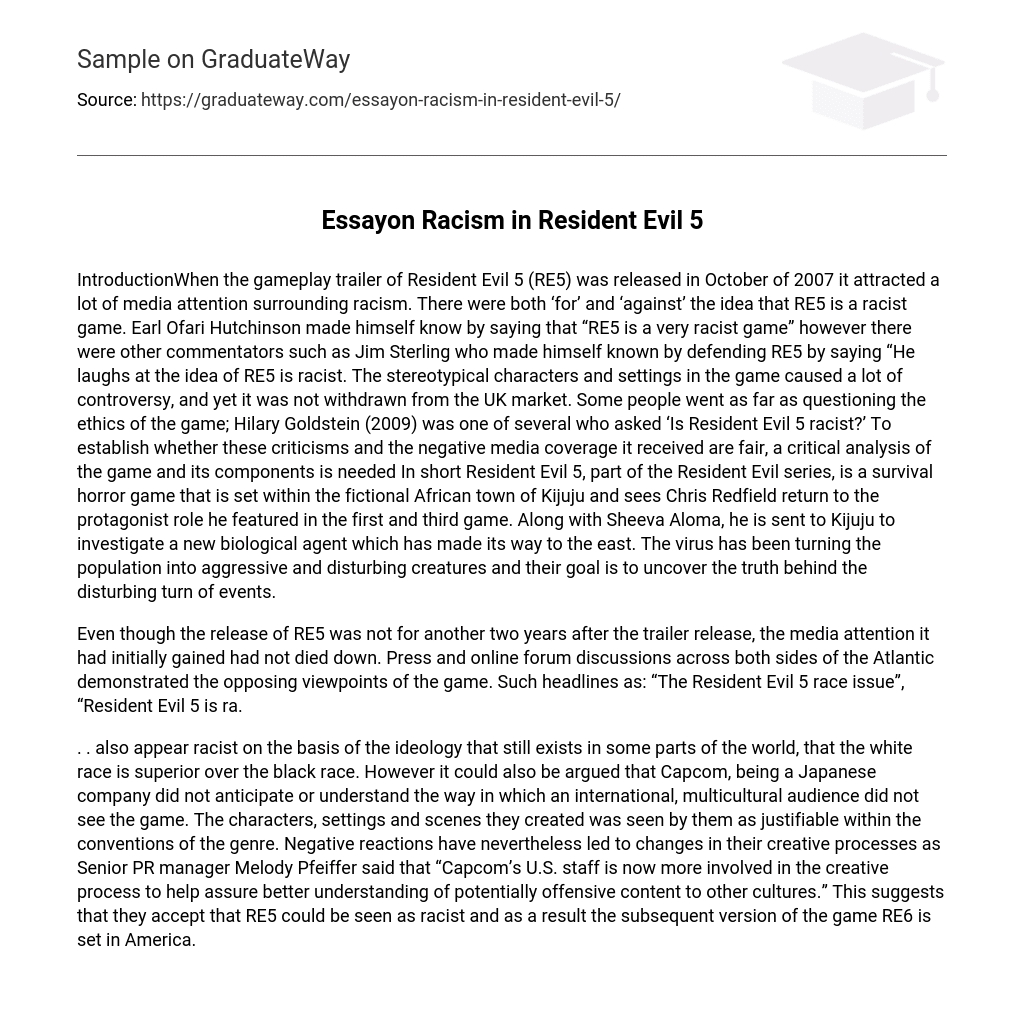Introduction
The release of the gameplay trailer for Resident Evil 5 (RE5) in October of 2007 stirred up controversy surrounding racism. Opinions on whether RE5 is racist were divided. Earl Ofari Hutchinson claimed that “RE5 is a very racist game,” while Jim Sterling defended it, finding the idea of racism laughable. The game’s use of stereotypical characters and settings caused significant controversy, but it remained available for purchase in the UK market. Some people even questioned the morality of the game, including Hilary Goldstein who asked, “Is Resident Evil 5 racist?” To fully evaluate these criticisms and negative media coverage, it is necessary to critically analyze the game and its elements. In summary, Resident Evil 5 is a survival horror game within the Resident Evil series set in Kijuju, a fictional African town. Protagonist Chris Redfield returns from previous games alongside Sheeva Aloma to investigate a new biological agent causing transformation into aggressive creatures in eastern Kijuju.
Despite the release of RE5 being two years after the trailer release, the initial media attention it received remained substantial. Press and online forum discussions from both sides of the Atlantic showcased conflicting viewpoints on the game. Headlines with titles like “The Resident Evil 5 race issue” and “Resident Evil 5 is also perceived as racist” emphasized the ideology that some parts of the world still hold, which asserts white superiority over black individuals. However, critics argue that Capcom, being a Japanese company, may not have anticipated or understood how an international, multicultural audience would perceive the game. They viewed the characters, settings, and scenes as justifiable within the genre’s conventions. Nonetheless, negative reactions prompted changes in Capcom’s creative processes. Senior PR manager Melody Pfeiffer acknowledged that “Capcom’s U.S. staff is now more involved in the creative process to help assure better understanding of potentially offensive content to other cultures.” This acknowledgment implies their acceptance that RE5 could be interpreted as racist, leading to the subsequent version of the game, RE6, being set in America.





